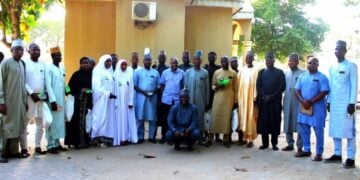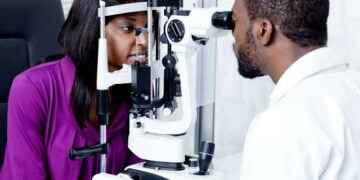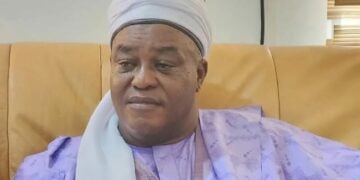Public health experts have called for increased public education and responsible use of social media to counter dangerous myths and misinformation about vaccines.
The experts, who spoke during a webinar titled “Immunisation Truth: Separating Fact from Fiction,” organized by Wuraisgold Charity Foundation, also called for more community engagement and trust-building.
One of the speakers, Dr. Oluwayinka Ilesanmi, emphasised the critical role vaccines play in preventing childhood deaths from diseases such as measles and smallpox. He stressed that immunisation is not only vital for children but for the continuity of society.
“In the past, many families lost children to preventable diseases but today, vaccines ensure survival and health, yet misinformation is threatening that progress,” he said.
Dr. Ilesanmi, who is a public health expert, attributed growing vaccine hesitancy to mistrust in the health system, cultural beliefs, and the spread of negative and often misleading narratives. “People are more likely to believe and share negative stories, even when they’re false. Unfortunately, these often come from people they know, not experts,” he said.
Dr. Ilesanmi also addressed concerns about vaccine side effects, explaining that mild reactions such as fever, swelling, or rash are normal and anticipated. “Even after immunisation, children are monitored for a short period to manage any immediate reactions,” he said, urging parents not to let rare adverse events overshadow the enormous benefits of vaccination.
Also speaking, Health Policy Strategist and Programme Officer at Nigeria Health Watch, Mr. Sunday Oko, shed light on the difference between misinformation and disinformation.
“Misinformation is when someone unknowingly shares false information. Disinformation, on the other hand, is shared deliberately to cause harm, often crafted to appear trustworthy,” he said.
Mr. Oko cited the COVID-19 pandemic as a clear example of an infodemic, a flood of information, both true and false, that confused the public and undermined vaccine efforts.
He emphasised the need to go beyond debunking myths. “We must empower people with tools to assess information critically. That’s the foundation of public health, enabling people to make informed decisions,” he said.
Mr. Oko also warned that poorly handled counter-messaging can inadvertently amplify falsehoods. “We must use social media wisely. It’s not just about correcting the wrong; it’s about communicating the truth clearly and consistently,” he urged.
Earlier in her welcome remarks, the CEO of Wuraisgold Charity Foundation, Mrs. Wuraola Onigbogi Jackson, said the event aimed to empower communities with accurate, evidence-based health information.
She said, in today’s digital age, misinformation can spread rapidly, stressing the need to rely on truth, especially when it comes to life-saving interventions like immunisation.
In his closing remarks, Mr. Mbotidem Jackson, reiterated Wuraisgold’s commitment to combating misinformation and promoting immunisation.





